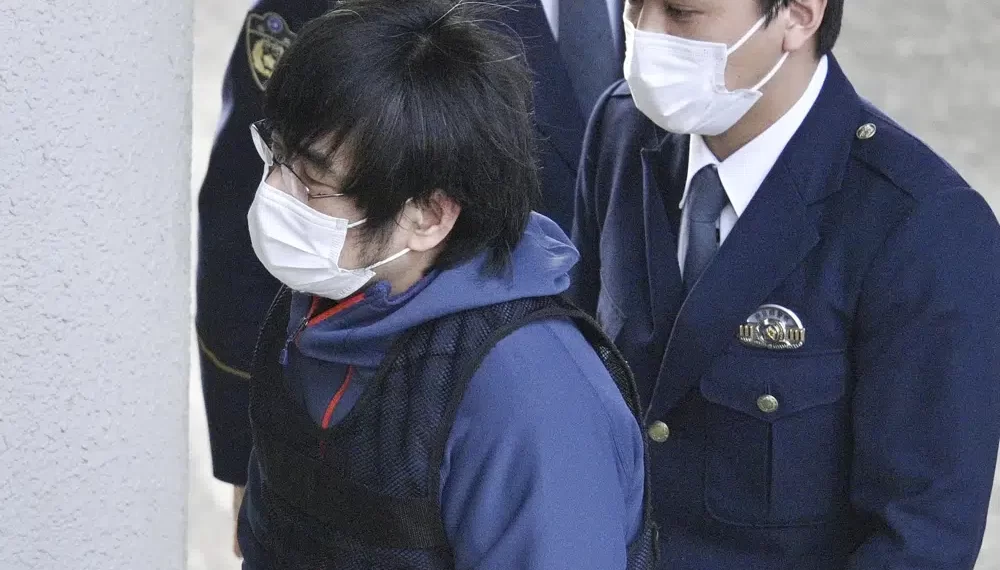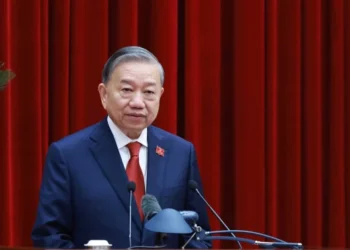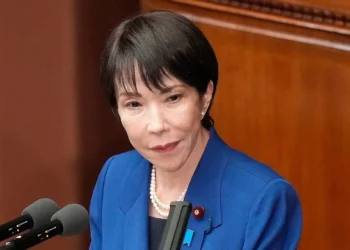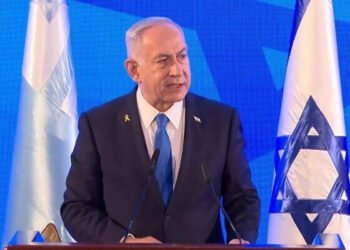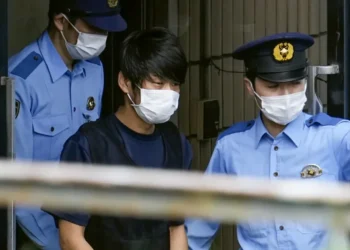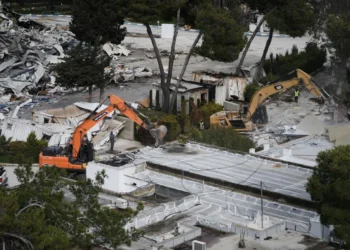Japanese prosecutors have indicted the suspect in the assassination of former Prime Minister Shinzo Abe with murder, sending him to stand trial.
The suspect, Tetsuya Yamagami was arrested immediately after allegedly shooting Abe with a homemade gun as the former leader was making a campaign speech in July, 2022 outside a train station in Nara in western Japan.
Yamagami then underwent a nearly six-month mental evaluation, which prosecutors said showed that he is fit to stand trial.
Doctors revealed that the bullet that killed the former Prime Minister was “deep enough to reach his heart” and that Abe died from excessive bleeding.
Abe, 67, the former Liberal Democratic Party leader and Japan’s longest-serving prime minister, held office from 2006 to 2007 and again from 2012 to 2020, before resigning due to health reasons.
His assassination in broad daylight stunned the world and sent shock waves through Japan. World leaders offered their condolences while thousands of mourners gathered in the streets of Tokyo to pay tribute.
An elaborate and controversial state funeral was held for Abe in September.
It was reported at the time that the suspect had targeted the former Prime Minister because he believed Abe’s grandfather; another former leader of the country, had helped the expansion of a religious group he held a grudge against.
Yamagami was also charged with violating a gun control law, according to the Nara District Court.
In his statements and in social media postings attributed to him, Yamagami revealed that he developed a grudge because his mother had made massive donations to the Unification Church that bankrupted his family and ruined his life.

Japanese law allows capital punishment for murder, but experts say the death penalty usually is handed down for multiple killings and Yamagami could get life in prison if convicted.
No date is set for the trial, which is expected to have a panel of civil jurors in addition to the usual bench judges, as is typical in murder cases and other serious criminal trials in Japan.
There are no pretrial hearings in Japan and defendants generally undergo trials.
In a country known for public safety and tight gun controls, the assassination led to the resignation of top local and national police chiefs and a tightening of security guidelines for political leaders and other prominent people.
Japan Will Ensure The Safety Of Dignitaries And Political Leaders
Chief Cabinet Secretary, Hirokazu Matsuno has disclosed that Japan will ensure the safety of dignitaries and political leaders with the summit of the Group of Seven nations and nationwide local elections coming in the spring.
In response to Yamagami’s indictment, Matsuno said, “We must take very seriously the heinous act of violence that resulted in the death of former Prime Minister Abe.”
Meanwhile, some Japanese have expressed sympathy for Yamagami, especially those who also suffered as children of followers of the South Korea-based Unification Church, which is known for pressuring adherents into making big donations and is considered a cult in Japan.
Also, thousands of people have signed a petition requesting leniency for Yamagami, and others have sent care packages to his relatives or the detention center.
The investigation into the case has churned out revelations of years of warm ties between Abe’s governing Liberal Democratic Party and the church since Abe’s grandfather, former Prime Minister Nobusuke Kishi, helped the church take root in Japan in the 1960s over shared interests in conservative and anti-communist causes.
Current Prime Minister Fumio Kishida’s popularity has plunged over his handling of the church controversy and for insisting on holding a rare, controversial state funeral for Abe.
READ ALSO: Biden And Kishida To Hold Talks At The White House

